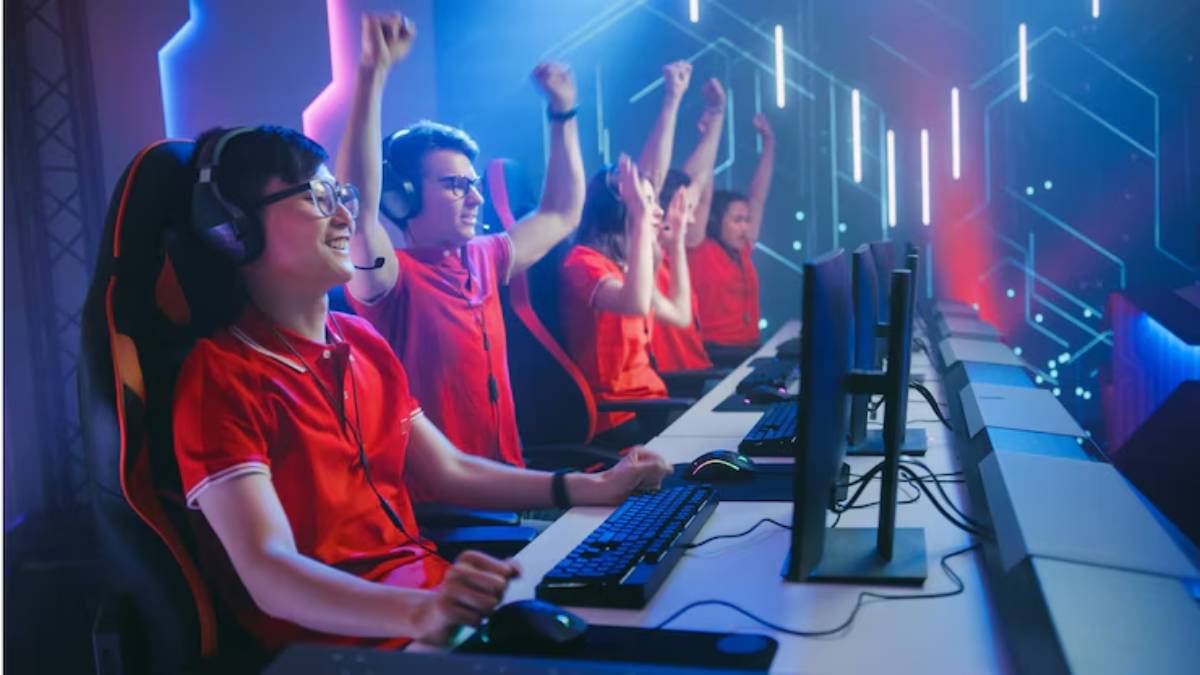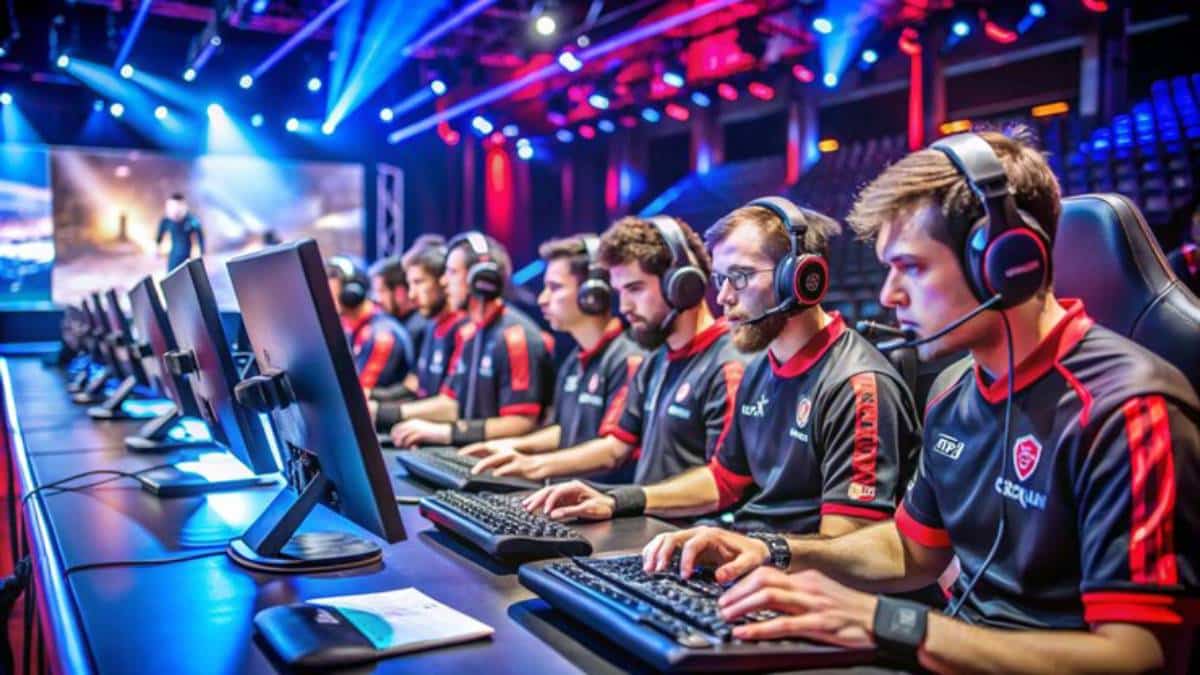
The Growth of University Esports Programs Worldwide
In recent years, competitive gaming has moved beyond casual and professional play. It has become a key part of education. The rise of university esports programs shows this growing recognition. Esports is more than just gaming; it includes education, community, and career growth. This makes it a vibrant area for students and schools. As collegiate esports expands, universities are investing in gaming teams and programs. They see the many benefits these initiatives provide.
Universities now view esports as more than a niche interest. They see it as a field that connects technology, media, and sports. With digital natives on campus, schools must offer activities that match student interests. Esports does this effectively. It promotes inclusivity. It boosts social interaction. It also opens new academic paths for diverse learners.
Key Benefits
Collegiate Esports Expansion: A Global Phenomenon
The expansion of collegiate esports is not confined to a single region; it is a global phenomenon. Universities across North America, Europe, Asia, and beyond are establishing dedicated esports programs. This growth comes from several reasons. First, esports are becoming more popular. Second, there are chances for scholarships. Also, students can gain skills useful in many careers.
Staffordshire University and the University of Roehampton in the UK are leading in adding esports to their programs. These universities see esports as a way to attract students, improve the university experience, and prepare students for careers in gaming and beyond.
In Asia, countries like South Korea and China have embraced competitive gaming. Universities are using this cultural excitement to create strong academic and extracurricular programs. These efforts show a shift in how colleges view and support esports.
Real-Life Applications and Data-Backed Insights
University gaming teams and academic esports programs offer benefits beyond gaming. Students in esports build vital skills like teamwork, strategic thinking, and leadership, which are valued in many careers. Thus, esports skills make a great addition to any curriculum.
The British Esports Association says esports make students more interested in their studies. Their engagement levels soar, leading to impressive retention rates. This echoes findings in other fields. In those arenas, esports programs boost student satisfaction and elevate academic performance.
Participation in esports builds soft skills like time management, communication, and emotional resilience. Students learn to handle pressure, adapt quickly, and work well in diverse teams. These skills boost their academic performance and enhance their long-term employability.
Universities diving into esports often discover engaged students flourishing on campus. This vibrant ripple effect weaves a tapestry of connection within the student body.
Additional Expert Tips & Common Mistakes to Avoid

Best Practices for Establishing Successful Esports Programs
Ready to level up your university’s esports program? Here are some key strategies: Weave esports seamlessly into your academic tapestry. Offer courses in game design, marketing, and management. These classes illuminate the industry, helping students power up their understanding.
Another key practice is to foster a supportive community around esports. This involves creating spaces where students can practice, compete, and collaborate. It also means working with local and national esports groups. This helps students find chances to compete and network.
Adding wellness and performance coaching helps students balance schoolwork with goals. Programs that focus on mental and physical health lead to better success and boost student satisfaction.
Universities must champion diversity and inclusion in their esports arenas. We promote gender equity, support students with disabilities, and provide culturally responsive programs. This way, we build a rich tapestry of inclusion. Together, we enrich our campus community, ensuring every voice is heard.
Common Mistakes and Misconceptions

Collegiate esports is growing, but schools should avoid common mistakes. One significant misconception is that esports is merely a recreational activity. Gaming is important. Successful programs also see the academic and career potential in esports. They include this in their education.
Another mistake is underestimating the resources required to run an esports program. Universities must invest in top-notch gaming gear and skilled coaches, which is vital for keeping their programs competitive and sustainable.
Another misstep is the lack of alignment with academic departments. Esports shouldn’t work alone. Working with fields like computer science, business, psychology, and media studies makes the program better and more inclusive.
Not adapting to changing trends in gaming can hurt program relevance. Institutions must keep up with new games, technologies, and industry standards. This helps them stay competitive and attract top talent.
Advanced Insights
Unique Industry Perspectives
Collegiate esports aficionados advocate for a holistic blueprint in program crafting. This approach emphasises competitive victories while nurturing students’ education and personal journeys. Universities can cultivate well-rounded scholars, ready to thrive. Enriching courses await, covering game development, digital marketing, and sports management. These offerings prepare students for diverse roles within the vibrant esports ecosystem.
Moreover, universities should consider partnerships with industry leaders. Students get special insights and opportunities when they work with game developers, esports teams, and tech companies, which boosts the program’s value.
Alumni engagement is another powerful tool. Graduates from esports programs can help current students in gaming or tech. They can provide mentorship, internships, and job opportunities. This creates a cycle of growth and advancement.
Lesser-Known Insights
An often overlooked aspect of university esports programs is their potential to drive innovation. Universities can lead in esports research by encouraging creativity and experimentation. This can spark fresh ideas in game design, improve player performance, and boost audience engagement, strengthening the institution’s reputation in academic and esports circles.
Additionally, esports programs can serve as incubators for student-led startups and interdisciplinary projects. Universities can help students by providing resources and mentorship. This support helps them explore business ideas and shape the expanding esports world.
Conclusion: The Growth of University Esports Programs Worldwide

The rise of university esports programs shows the sector’s potential. Colleges are embracing esports, which brings new opportunities for students, schools, and communities. These institutions enhance their offerings by investing in gaming teams and academic programs. They also attract diverse students and support the growing esports field.
Students and educators, the message is clear: now is the time to get involved with esports. If you’re a student looking for options or a university aiming to grow, esports is a great opportunity. As you dive into this field, focus on developing students holistically. Embrace innovation and build strong partnerships in the industry. The future of esports is bright, and universities can shape its path.
Integrating esports into higher education is more than following digital trends. It’s about shaping the future of learning and engagement. This move supports professional development in a fast-changing world.


